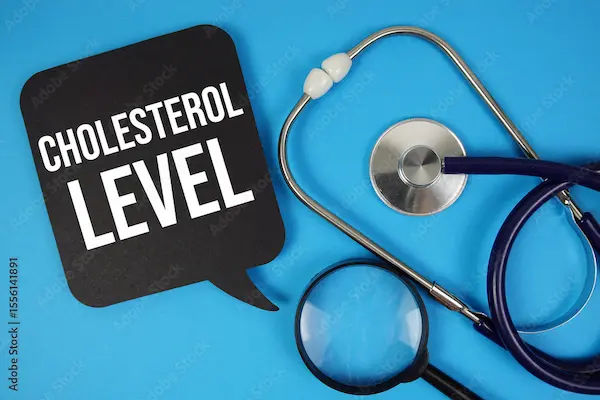- Male
- 29 Years
- 20/02/2025
Today I was feeling really breathless, so I decided to see a cardiologist. They had me do an ECG, and after looking it over, the doctor recommended getting another one in 23 days. Should I be worried about what my ECG showed? I'm also on antidepressants, and I've heard they can sometimes cause long QT syndrome. Could that be what's going on with my QTc interval? I've attached my ECG, and I'm just hoping you can let me know if there's anything abnormal.
Answered by 1 Apollo Doctors
The QTc interval on your ECG appears to be prolonged, which can be a concern as it may lead to arrhythmias. Since you are on antidepressant medication, it is important to monitor this closely as some antidepressants can indeed prolong the QT interval. I recommend discussing this with your cardiologist and considering a change in medication if necessary. In the meantime, you may benefit from taking a medication like Escitalopram at a lower dose to reduce the risk of QT prolongation.
Dr. Shubham Suggests...
Consult a Cardiologist
Answered 04/07/2025
0
0

Ask Apollo
AI powered Health Chatbot
-
Understanding Your ECG and Breathlessness
- An ECG measures heart rhythm and electrical activity. Breathlessness can prompt this test to check for heart issues.
- Follow-up ECGs help monitor changes in heart function over time.
-
Antidepressants and QTc Interval
- Dosulepin can affect heart rhythm and potentially cause long QT syndrome.
- Long QT syndrome increases the risk of irregular heartbeats, requiring medical supervision.
-
Interpreting Your ECG Results
- A repeat ECG is often recommended to ensure accurate monitoring rather than indicating immediate concern.
- QTc interval measurement is crucial in assessing heart rhythm risk.
-
Next Steps and When to Seek Help
- Monitor symptoms like worsening breathlessness, palpitations, or fainting.
- Attend follow-up ECG and cardiology appointments.
- Discuss medication concerns with your healthcare provider before making changes.
-
Reassurance and Support
- Your concerns are valid, and professional evaluation is essential.
- Maintain open communication with your cardiologist and prescribing doctor.
Recommended next steps
Consult a Cardiologist
Answered 10/09/2025
0
0

More Cardiology Health Queries
View allI'm really struggling to understand my heart issues. For someone who's been dealing with heart problems for 34 years, it's tough to know what's happening. I have diastolic relaxation abnormality, and my TMT was mildly positive, but that was dismissed with a normal CT angiography. I often feel my heart skip a beat with a thud during exercise and even at rest. My exercise tolerance seems to be getting worse, and my heart rate jumps past 130 after just a few minutes of daily activity, though it calms to 60s bpm in the morning. I often feel dizzy, weak, and fatigued. The ECGs say I have LVH, but the echo says normal LVM. Can diastolic relaxation abnormality indicate heart failure? Is the ECG more reliable than the echo for identifying LVH? And should I be comfortable trusting the CT angio results? Any insights would really help clarify things for me.
1. Diastolic relaxation abnormality does not necessarily mean you have heart failure, but it does indicate that your heart's ability to relax and fill with blood is impaired. It is a condition that can progress and should be monitored and managed carefully by your healthcare provider. 2. The echocardiogram (echo) is generally considered more accurate for assessing left ventricular mass (LVM) and structure, so you can trust the echo results over the ECG for diagnosing LVH. 3. A normal CT angiography report is generally reliable and indicates that your coronary arteries do not have significant blockages. Given your symptoms of skipped heartbeats, exercise intolerance, dizziness, and fatigue, it's important to follow up with your cardiologist. They may need to reassess your condition and consider other diagnostic tests or treatment changes. Continuous monitoring and a thorough evaluation by your healthcare provider are essential to address your concerns and ensure proper management of your heart health.
Answered by 1 Apollo Doctors
I'm a bit worried after getting my chest X-ray results, which mentioned "raised broncho vascular marking." Is this something that can be treated, and what kind of specialist should I reach out to for help?
yes it is curable, u need to consult pulmonologist.
Answered by 1 Apollo Doctors
My mom had valve replacement surgery 10 days ago but she's still struggling with breathing issues and has a fever. Why is this happening?
cardiologist opinion is advised.
Answered by 1 Apollo Doctors
Disclaimer: Answers on Apollo 247 are not intended to replace your doctor advice. Always seek help of a professional doctor in case of an medical emergency or ailment.





